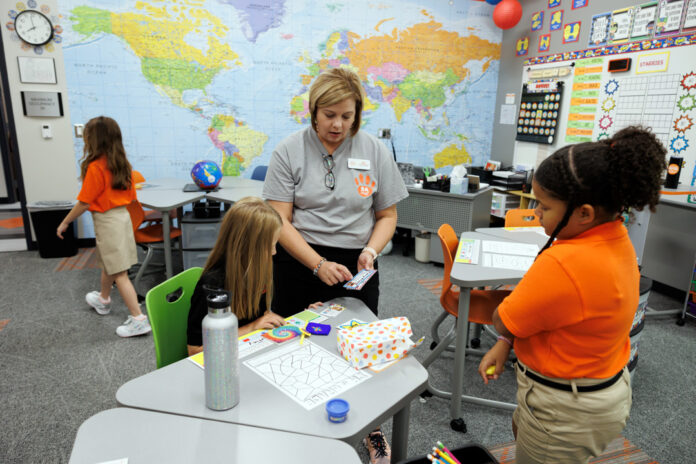
Sunlight streams into Teresa Kalmbach’s fifth grade classroom as she organizes a learning activity for her students.
“I’m so excited to be here,” she said. “This is a dream come true for me.”
Kalmbach is one of seven highly trained educators at Roberts Academy at Mercer University — Georgia’s only school for dyslexic students outside metro Atlanta and the most affordable for dyslexic students in the state.
The Academy, located about two blocks from Mercer’s Macon campus, serves students in second through fifth grade. Its mission is to prepare students with dyslexia to achieve academic success through dynamic educational programs.
“I know firsthand how desperately Middle Georgia needs this school,” Kalmbach said. “I wish it were here when my son was younger.”
Her oldest son, Jason, was diagnosed with dyslexia in the fourth grade after years of struggling to learn to read. His undiagnosed dyslexia affected every part of his academic experience as well as his self-esteem.
“He was reluctant to try in school because he didn’t want his peers to know he was struggling,” Kalmbach said. “He knew something was wrong. He just didn’t know what.”

But even after receiving his diagnosis, he continued to struggle.
“His teachers tried to help him, but nothing was working,” she said. “His reading deficits were severe, and nothing he was learning seemed to stick.”
Once Jason entered eighth grade with little to no literacy gains, the Kalmbachs decided to look for outside support.
Kalmbach, who was working as a pediatric nurse, left her job to help her son get the extra support he needed.
She attended Orton-Gillingham parent training — an approach to literacy instruction specifically designed for dyslexic learners. But it didn’t take long for her to realize Jason needed support beyond what she could provide, so she enrolled him in a specialized learning center in Atlanta for students with dyslexia.
“We spent hours every day commuting back and forth to Atlanta from Warner Robins, so he could take classes at this center,” Kalmbach said. “I would nap in my car while he was in school. It was exhausting, but it was worth it.”
After four months at the center, Jason’s literacy level increased by four grades. Kalmbach was so amazed by his progress that she decided to pursue a second career in special education.
“I knew our schools needed more teachers specifically trained to help students with dyslexia and other learning differences. I was so inspired by my son’s progress that I wanted to make sure that other dyslexic kids didn’t have to travel so far to get the support they needed,” she said.
Kalmbach now holds bachelor’s, master’s and specialist degrees in elementary and special education as well as endorsements in general reading and dyslexia.
Now an adult, Jason Kalmbach has a successful career in information technology.
“He makes more money than I will ever make,” Kalmbach said, laughing.
But Jason’s journey with dyslexia continues as Kalmbach’s grandson, Eli, 7, begins to navigate his own journey with the learning difference.
The Roberts Academy story
The Roberts Academy at Mercer was made possible through a historic and transformational gift from philanthropists Hal and Marjorie Roberts.
The Robertses are passionate about supporting children with dyslexia because three of their grandchildren struggled to learn to read. After being diagnosed with dyslexia, the children attended a specialized school for dyslexia in Atlanta where their reading skills quickly improved, and their academic confidence was restored.
“We witnessed firsthand the toll dyslexia takes on a family and a child’s self-esteem, and then we saw the transformation that takes place in the right learning environment,” said Hal Roberts. “We know what works for children with dyslexia, and we need to make it accessible for all children.”
Gifts from the Roberts family have also established two other specialized dyslexia schools: The Roberts Academy at Florida Southern College in Lakeland, Florida, and the Roberts Academy at Vanderbilt University in Nashville, Tennessee.
Hal Roberts said he chose to establish the schools at universities because he wants to make the biggest impact possible.
“Higher education drives progress in our country. It is the staging ground for thought leadership and cutting-edge research and the launching pad for the next generation of thinkers and doers,” he said.
The connection between Roberts Academy and Mercer is symbiotic, said Dr. Thomas Koballa, dean of Mercer’s Tift College of Education.
“The Roberts Academy will benefit from being part of Mercer because it will have quick access to top professors, leading research and state-of-the-art facilities,” he said. “In turn, the school will help shape the next generation of educators through its presence on campus. Roberts Academy will shine a spotlight on dyslexia and better prepare our students to change the lives of children.”
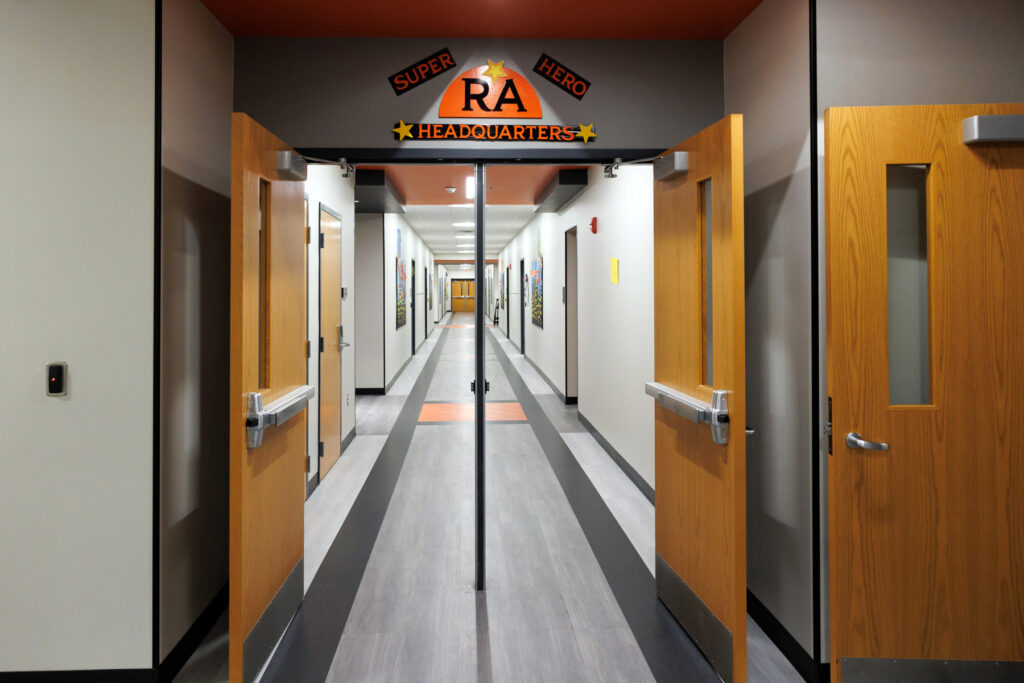
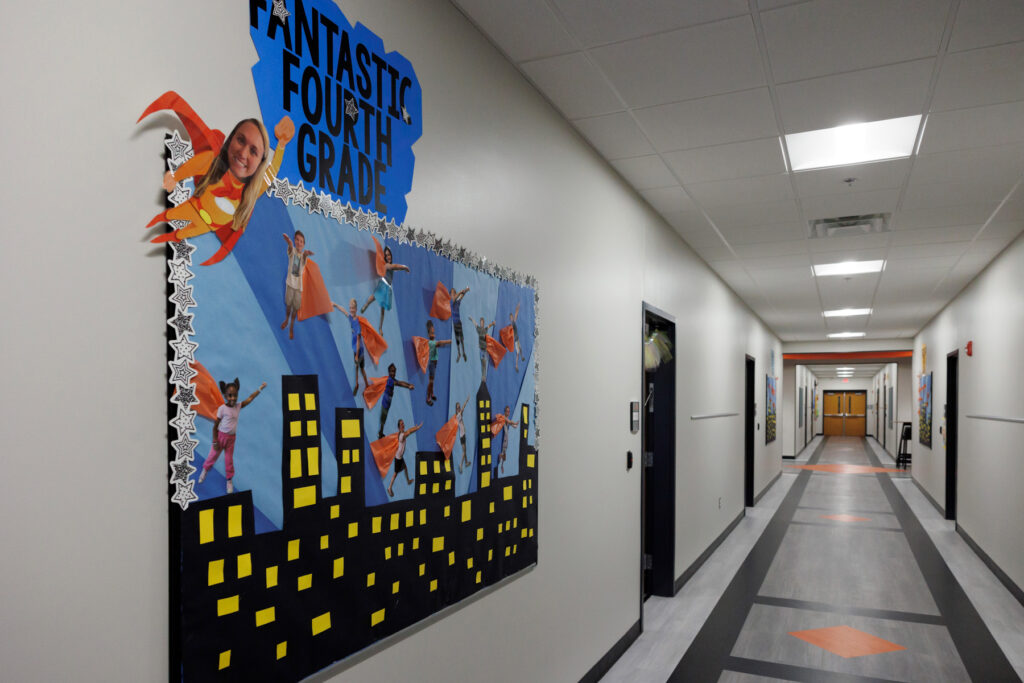
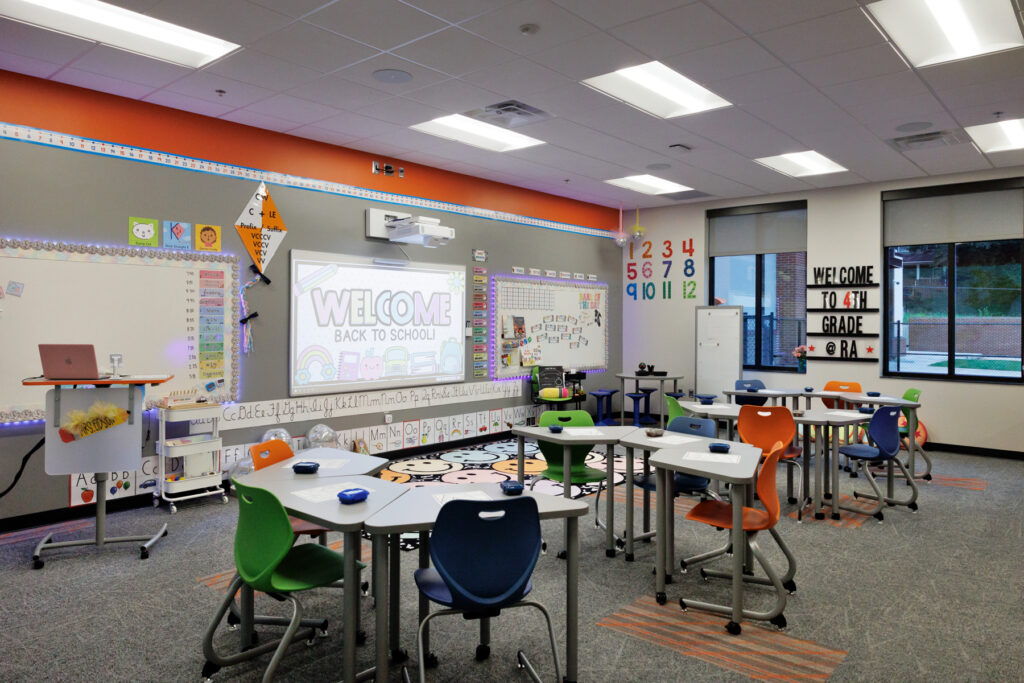
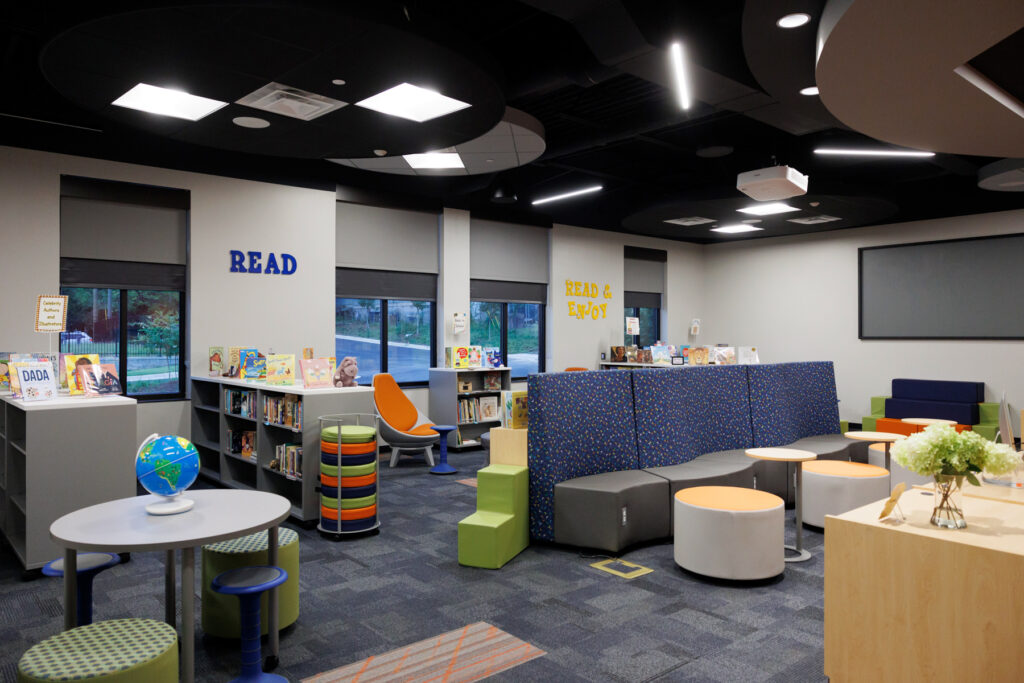
What is dyslexia?
Dyslexia affects up to 20% of the U.S. population and makes up 80% of those diagnosed with a learning disability, according to the International Dyslexia Association.
“But at Roberts, we don’t call it a disability,” said the Academy’s Head of School, Joy Wood. “We call it a difference, because these students learn in a different way. And at Roberts, we teach them to read in a way that makes sense for their brains.”
According to the International Dyslexia Association, dyslexia is a brain-based condition that causes trouble with reading words accurately and quickly, as well as with spelling and writing.
These issues often arise despite having strong cognitive skills and receiving good instruction. As a result, students with dyslexia often struggle to understand what they read. They read less overall, which can slow down vocabulary acquisition and knowledge growth, as well as impact their self-esteem.
“Many dyslexic students believe that they can’t read because they are lazy or dumb, and that couldn’t be further from the truth,” Wood said. “One of our goals is to reframe dyslexia as a superpower because once remediation occurs, their dyslexic superpowers really start to shine through.”
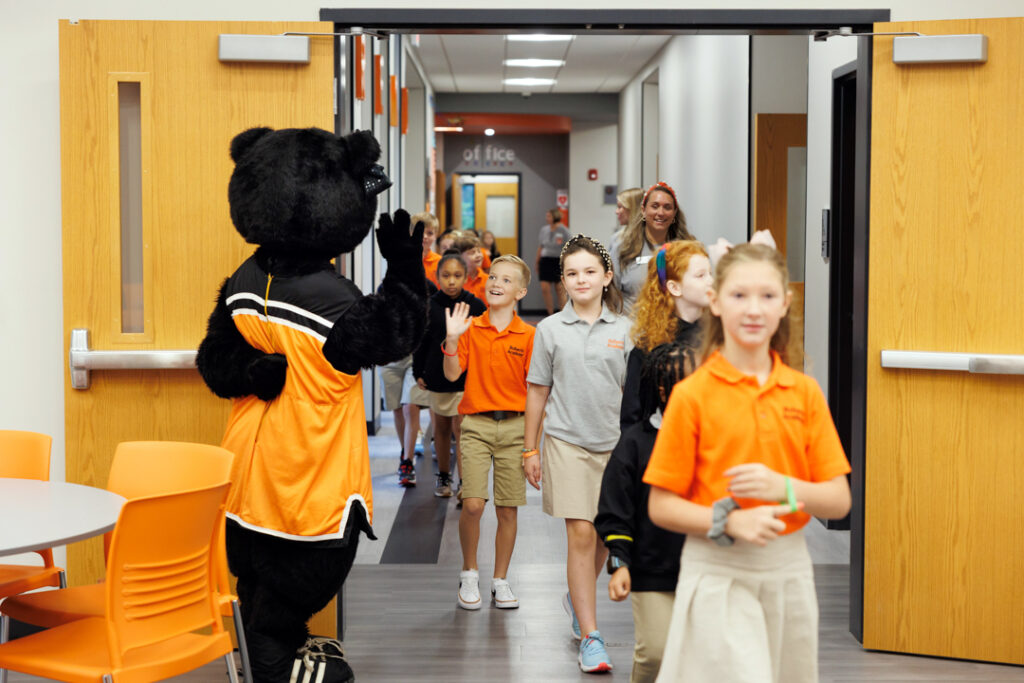
Finding their superpowers
Dyslexic individuals are often extremely creative, great problem solvers and strong critical thinkers. Some of the world’s most prolific scientists, artists, actors, musicians and political leaders are dyslexic. These include Steven Spielberg, Octavia Spencer, Tony Bennett, Cher, Jennifer Aniston, Gwen Stefani, Pablo Picasso, Leonardo Da Vinci and seven U.S. presidents.
Dyslexia is also often a family affair. According to Understood.org — the leading nonprofit empowering the 70 million people with learning and thinking differences in the United States — it has a heritability rate of 40%-80%.
“Thanks to the work I did with my son, we were able to spot Eli’s dyslexia early on, and now he will get the intervention he needs much sooner than his uncle,” Kalmbach said.
The Roberts Academy difference
Roberts Academy uses the Orton Gillingham Approach — an individualized, intensive approach to reading instruction designed specifically for students with dyslexia.
Rooted in 80 years of research and teaching practice, it starts with the basics and focuses on the structure of words and language.
Gradually, it weaves the skills of reading, spelling and writing into an integrated whole. The approach is diagnostic, personalized, multisensory, structured, cognitive and success-oriented.
Every teacher at the Academy is trained in Orton-Gillingham and will continue to receive training throughout the school year.
“The Orton-Gillingham Approach is the gold standard in dyslexia intervention and remediation,” Wood said. “All students can benefit from Orton-Gillingham, but it’s the only way dyslexic students can learn to read.”
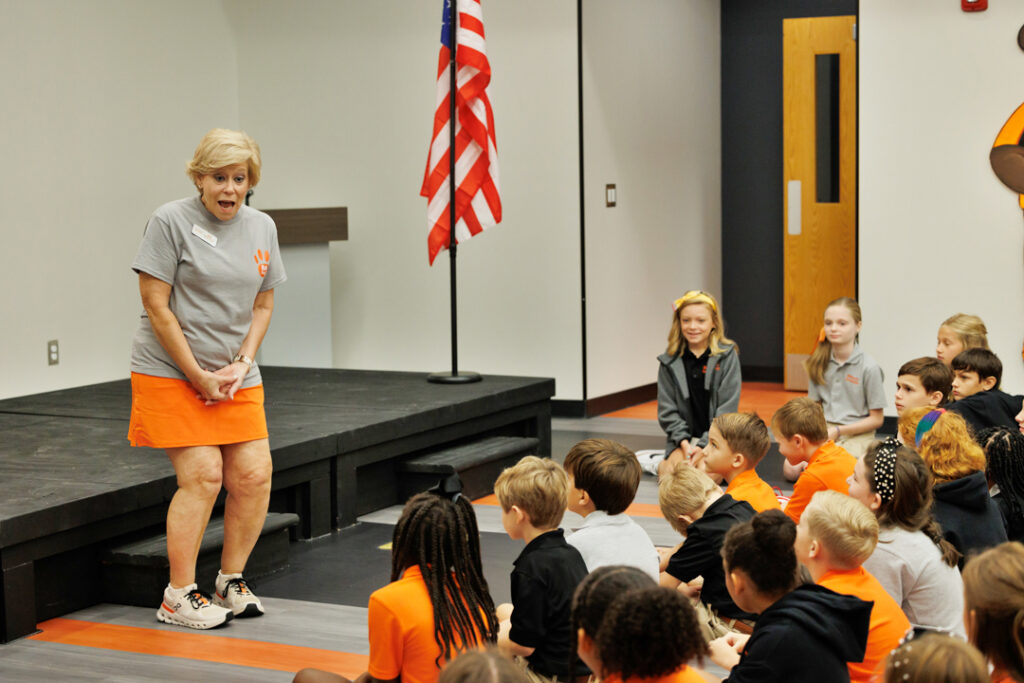
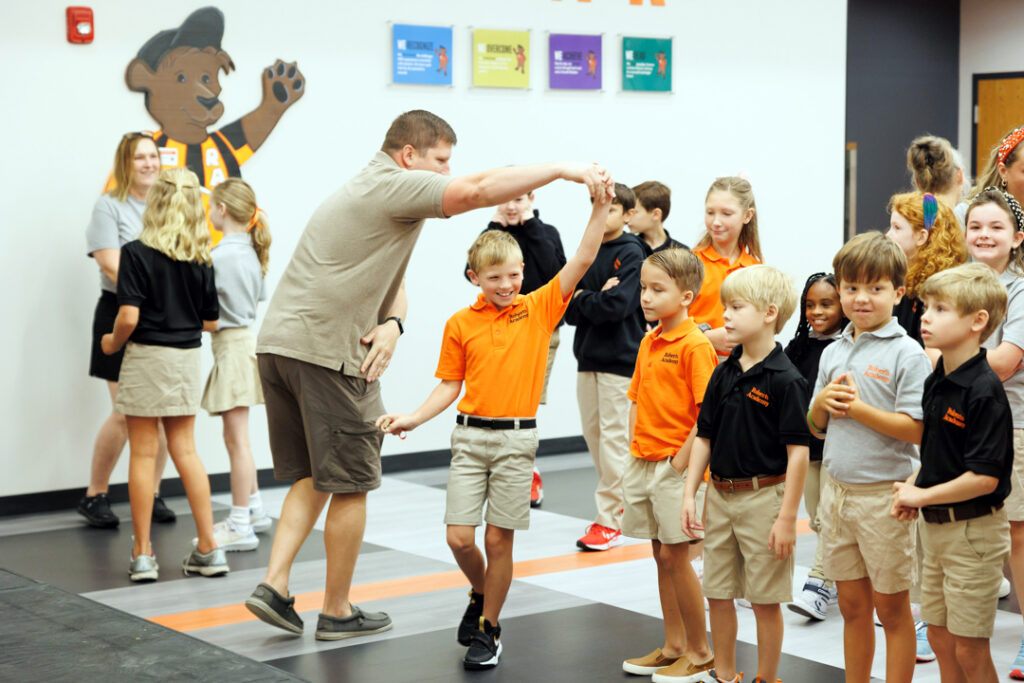
While reading is the focus of the Academy, the school’s curriculum is aligned with the Georgia Standards for Excellence; students will learn mathematics, science, social studies, computer science, fine arts, health and physical education, and English language arts.
Because the curriculum will follow the Georgia standards, Academy students will keep pace with the learning advances made by students attending public or independent schools in Georgia.
“Our goal is to remediate and release,” said Wood. “We want to provide our students with the tools they’ll need to be successful in any educational environment.”
Additionally, the Academy’s small class sizes ensure each student will get the individualized and prescriptive instruction they need to succeed. Homerooms at The Academy will not exceed 12 students, and reading groups will never exceed six students.
The inaugural year
In August, the Academy’s faculty, as well as Mercer’s cheerleaders and mascot, Tot, welcomed 31 students to the Academy for their first day of school.
“That was a very exciting day,” said Wood. “It was two years in the making, and to see all of our hard work come to fruition was extremely rewarding.”
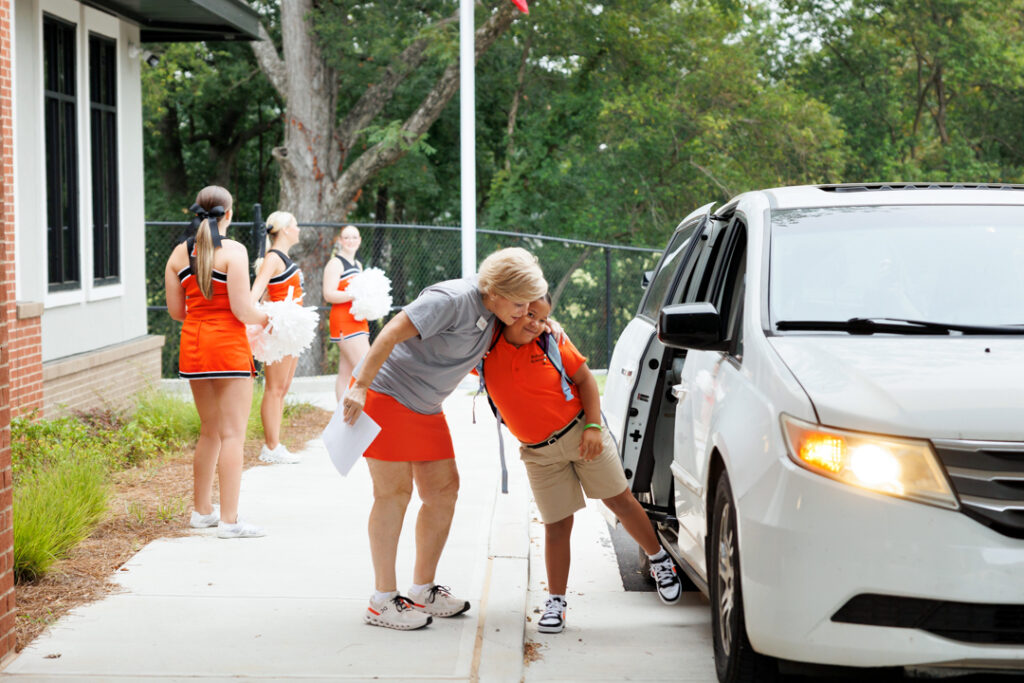
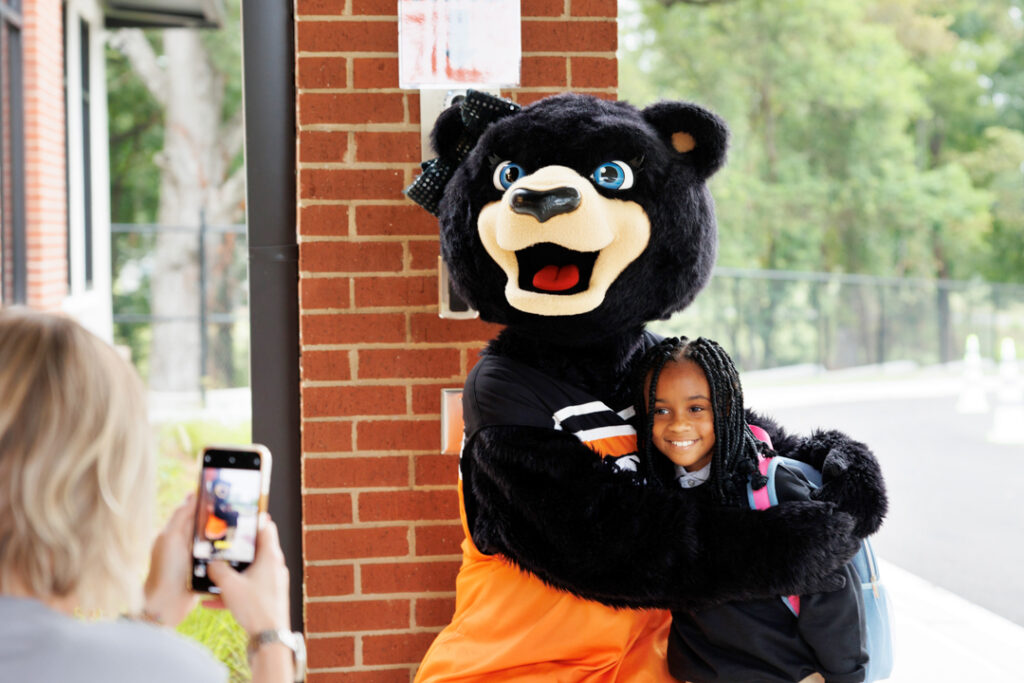
Roberts Academy parent Betsy Griffith said she and her husband, Wes, chose Roberts Academy for their son, Knox, because of its approach.
“We think that Roberts Academy will not only help Knox learn but also teach him to advocate for himself when he transitions back to the school of our choice,” she said. “Knox struggled last year in first grade and there were many days he would come home in tears because of being so frustrated. At Roberts, he will be understood and accepted. We believe he will begin to enjoy learning and regain his self-esteem.”
The school can accommodate 180 students but won’t reach full capacity for several years.
“Our priority is to maintain integrity while supporting each learner effectively,” Wood said.
Kalmbach is excited about the launch of what she hopes will be an incredible school year.
“We are creating something very special here,” she said. “We’re going to change lives, and I can’t wait to watch it happen.”








